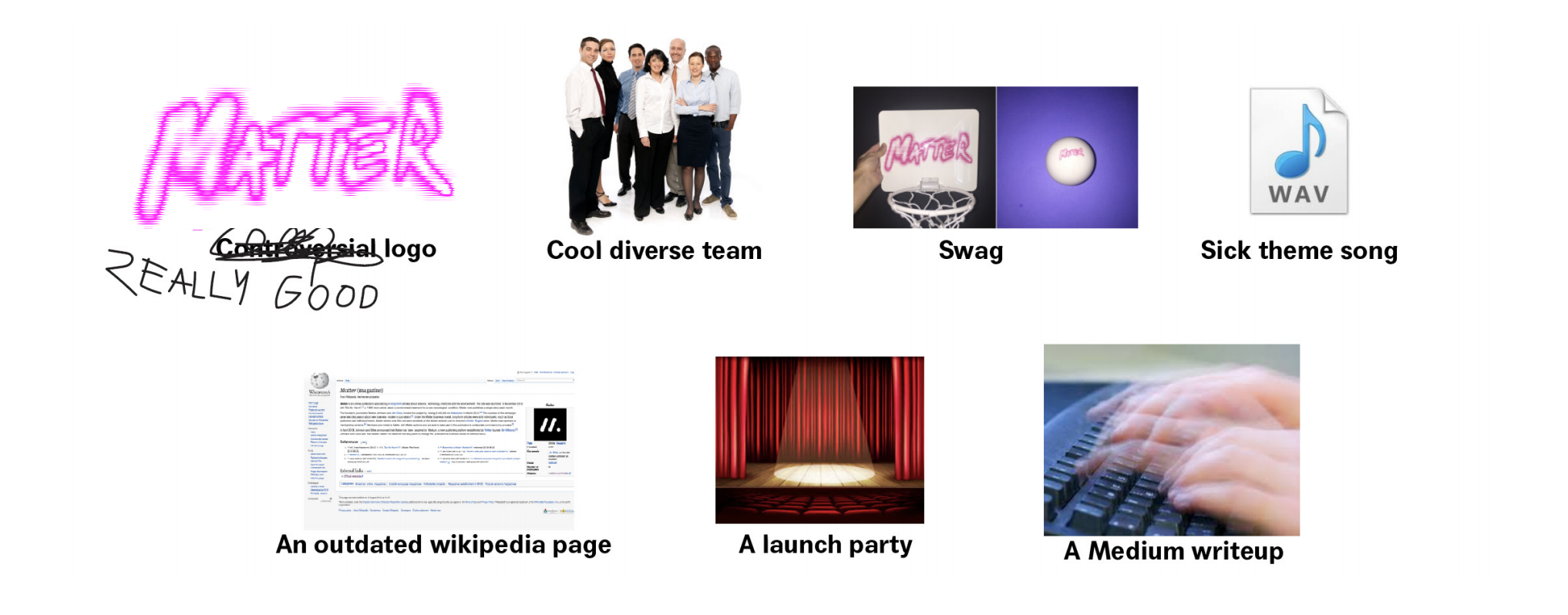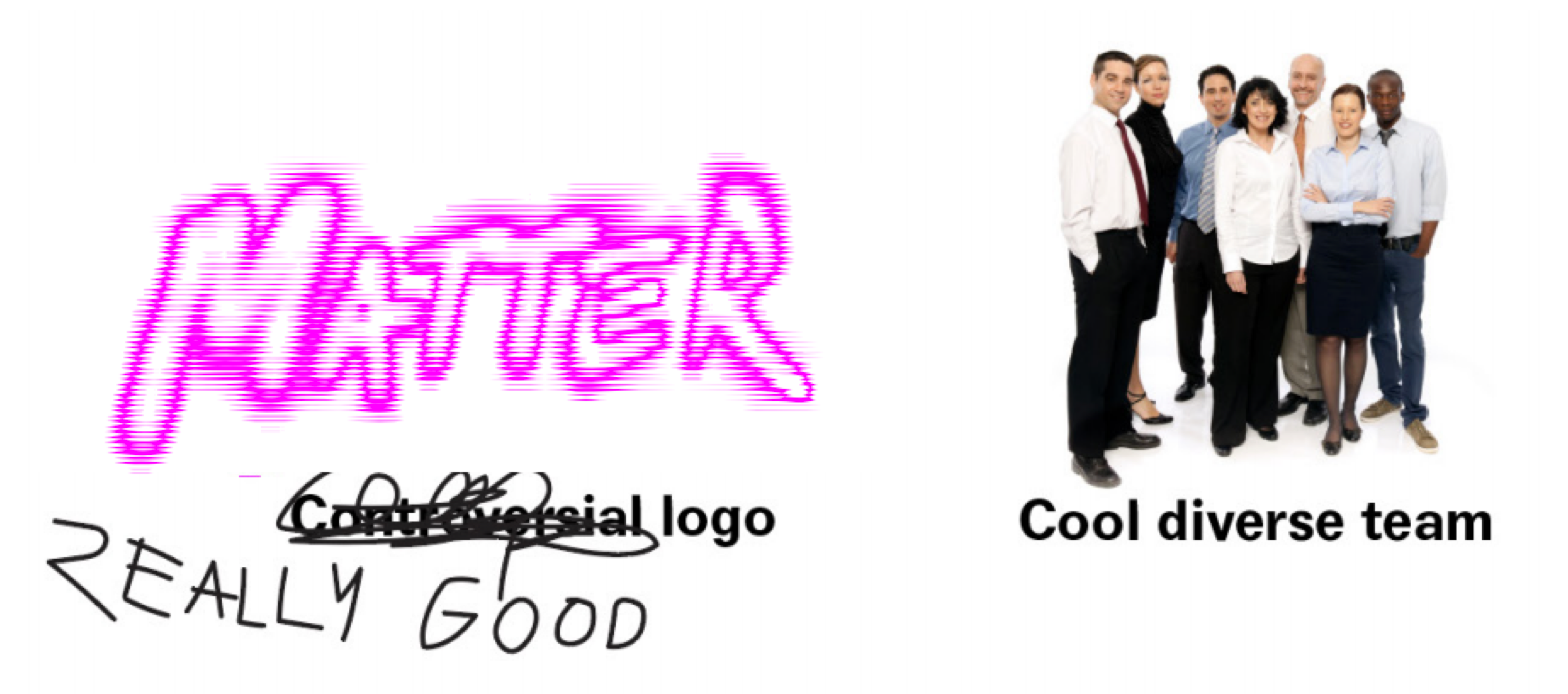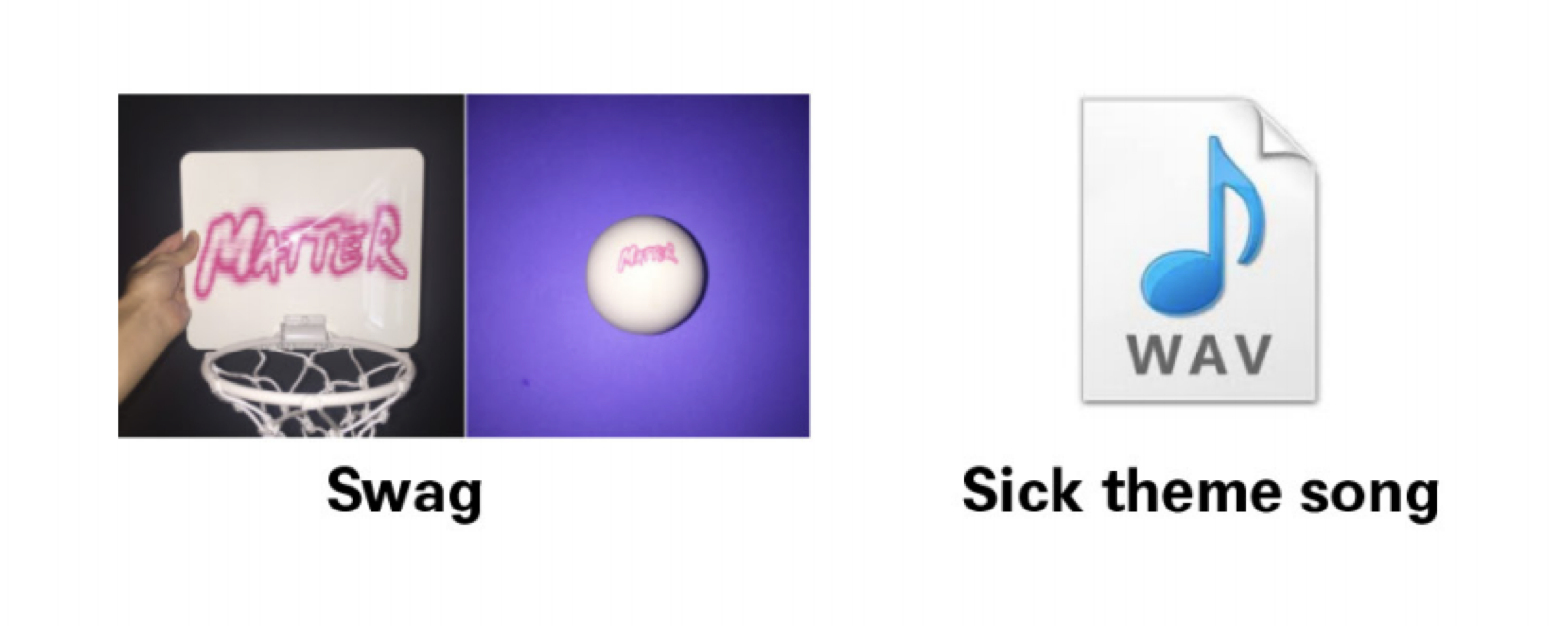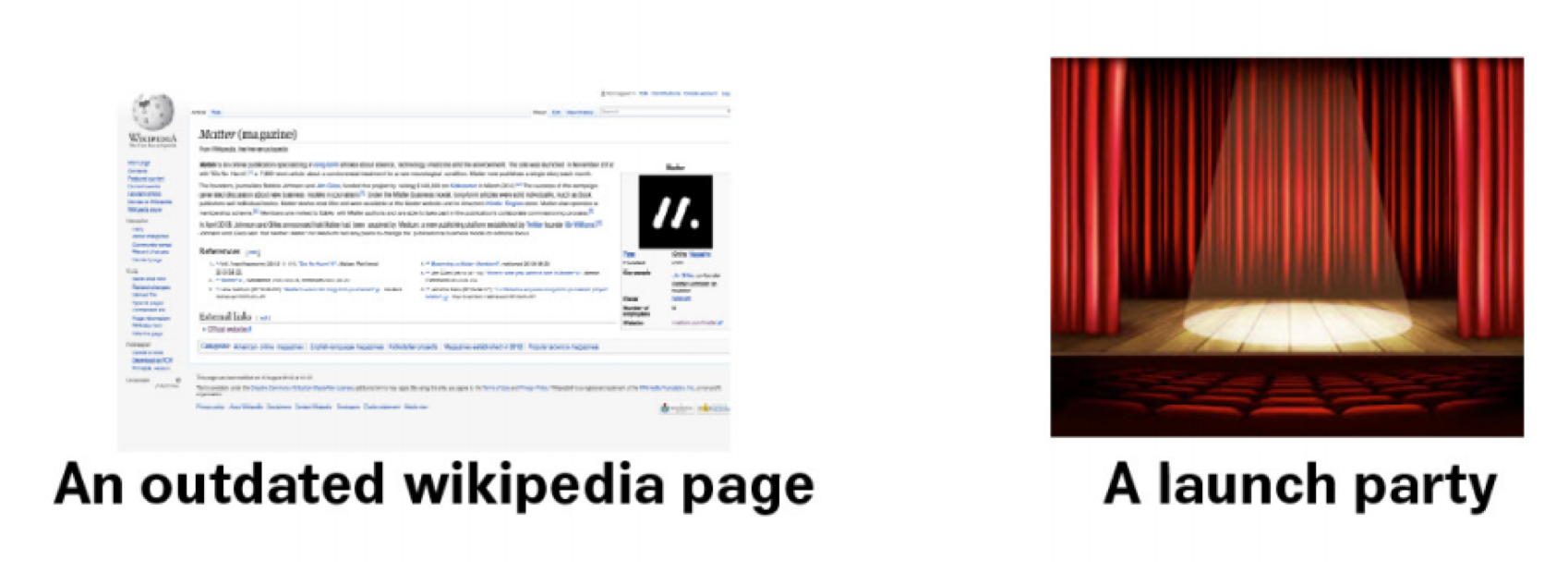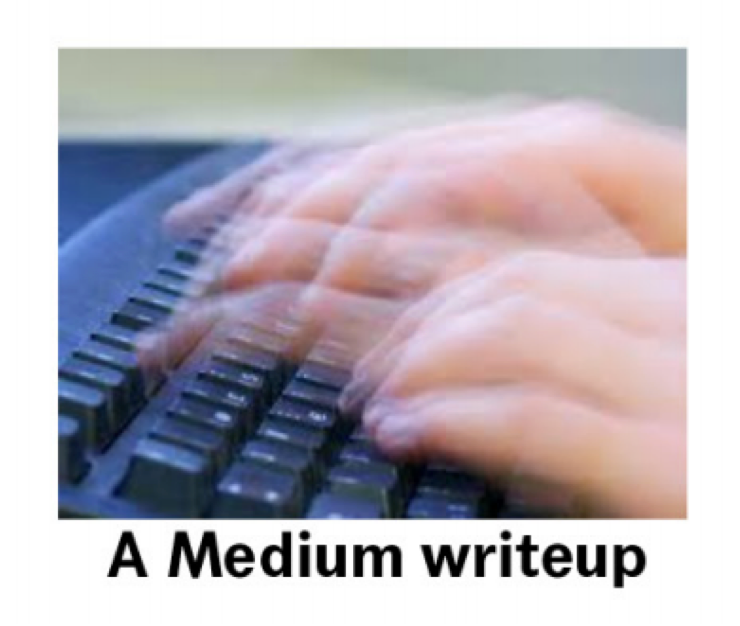- What is Matter Studios?
- What kind of stuff?
- In what format?
- How do I work with you?
- Are you interested in partnerships or sponsorships?
- What if I just want to check out your work?
- What if I just want to say hello?
- Why should I work with you?
- What if I were to say yes?
- You really think we can change the world?
- Can you do that and also make money?
- Isn’t that what every media company wants to do?
- What do you offer?
- How do I know what kind of story you’re looking for?
- Can you walk me through the submissions process step by step?
- Can I be honest with you, though?
- This still feels like more of the same. What’s different about Matter?
- How so?
- Why should I trust you?
- How do I know you’re real?
- You don’t seem to have much chill.
- Isn’t Matter a magazine?
- Does Matter the magazine still exist?
- Will the magazine still publish on Medium?
- What’s the exact deal with Medium and Matter?
- Who’s on your staff?
- An advisory board? Who’s on that?
- Sarah Agudo: Product counsel at Snapchat, former head counsel at Medium
- Stephen Friedman: Former president of MTV with four Emmy awards and two Peabody awards for groundbreaking pro-social campaigns, who has returned to his roots to focus on social impact and mission-driven companies
- Akilah Hughes: A UCB-trained stand-up comedian, popular YouTube creator and 2016 resident, contributor to Fusion and MTV, fellow at the Sundance Episodic Story Lab
- Bobbie Johnson: The Medium editor who co-founded the original Kickstarter-backed Matter and masterminded our Ellie-nominated Ghost Boat investigation
- Laura Olin: President Obama’s 2012 social media director, creator of The Awl’s Everything Changes newsletter, and author of Form Letters
- Lydia Polgreen: Veteran editor and foreign correspondent at The New York Times who currently leads the paper’s global expansion effort
- Fisher Stevens: Documentary filmmaker, producer, and actor, who directed Mission Blue and Before the Flood, and won the 2010 Oscar for Best Documentary Feature for co-producing The Cove
- Quite the crew. So who will work on my project?
- And the board?
- Okay, I’m glad you mentioned that, because what is up with your logo?
- Where should I be looking right now?
- Why are you like this?
- Are you really going to answer every thing I ask you?
- What is a question you like to ask on a first date?
- Did you know smoking increases your likelihood of heart disease?
- What is 10(3(5+7)-8)?
- OK. Back to the “Matter” at hand, if you see what I did.
- I think it would help to talk about projects that you are NOT interested in.
- Right so what doesn’t do that?
- What if I have a VR idea?
- Why?
- It seems like so many companies are shifting their gaze to creators these days.
- What do you mean by having people involved in the process?
- And you would just post those 10 minutes of film online?
- Sure, but I don’t like sharing my work before it’s finished. So.
- That’s exactly how I feel.
- I get the part about the things I share, but what about the actual thing I’m working on?
- Why?
- So the 300 words I wrote this morning are art lol?
- Then what happened?
- I see, so it’s more than simply publishing drafts.
- What if you guys actually pull it off?
- What is the medical term for ice cream headaches?
- Do you sometimes indulge in vices to drown out your crippling anxiety?
- Yes please.
- OK. What’s something I can’t google about you?
- Who on your team is the worst at speaking openly about their feelings when angry or worried?
- Do you feel like you understand one another better every single day?
- 2 H₂ + O₂ →
- So if my project is a Matter project, you would help me make it?
- And money?
- How involved will you be with my project?
- I worry that I don’t take enough risks.
- Pick up smoking.
- Make every photo in your Tinder bio a group pic with your better-looking friends who are already in relationships.
- Quit job to sail around the world just to write a viral Medium post to teach people how you did it.
- Make an egg Twitter account and infiltrate a subcommunity of incredibly angry people to dismantle them from the inside.
- Kick it with someone you’ve never gotten along with and tell them your fears.
- How do I know we’ll get along?
- What will collaborating with you feel like?
- Ugh, there is so much stuff I need to watch. And here you are wanting to make more things. Isn’t there enough out there?
- What if I haven’t made anything before?
- Linkedin sends me so many emails.
- In one word describe the color yellow to someone who is blind.
- Idk I read a Linkedin story about the top 10 mind-bending interview questions they ask at hedge funds and tech companies. I was riffing.
- Is it better to reach a lot of people superficially or one person profoundly?
- No, the rule is you have to pick one or the other.
- It seems like if I made something of minor consequence to a lot of people, maybe I get my write-up and people talk about me on Twitter for a day. But they won’t be around for the next thing I make. Whereas the single person who I affect profoundly will be there, and talk about my ideas with others. That seems better?
- What stops people from understanding themselves?
- That’s what this entire dialogue is, right? You asking yourselves questions? Because I’m not real.
- Do you feel like you created me to drown out your own existential anxieties?
- Are you happy?
We’re a content studio that makes stuff.
Urgent stories with powerful, singular voices.
Digital books, print books, documentaries, publications, distributed content, podcasts, live events, web series, and new things we haven’t thought of yet.
Pitch us your idea using our submissions portal.
Join our mailing list for information on current projects, events, and opportunities. We're also on the following digital platforms.
Hi. Email us.
We want to change the world with powerful stories—don’t you?
Well, don't you?
Well, don't you?
Then presumably we’ll have something interesting to talk about.
Yes.
Yes.
Most of us came from traditional media companies whose consuming goal was to get bigger. But to change the world we also have to make big work. For that, we need to elevate the most important piece of making culture: You. We’ve built a company around you.
If we work together here’s what you get: a team of experienced editors, storytellers, and producers obsessed with your idea and doing everything in their power to have it heard. We will push your idea to grow, expand, surprise, shock, truth-tell, and delight an audience that we’ve helped you build. But if you work with Matter Studios here’s also what you get: Power. We respect your intellectual property and we’ll help you develop a sustainable model of support that best fits your voice and your work.
You know that idea twitching in your mind? The one you know the culture needs? That story you can’t help but obsess over to the detriment of your irl functioning? We’re all ears.
1. You pitch us through the submissions portal
2. We read every pitch, and respond promptly.
3. If we do not like your pitch, we let you know.
4. If we like your pitch, we let you know. We talk again. Probably in person if we can, and over some sort of beverage, depending on your beverage preference.
5. If that works out, we talk a lot more. Definitely in person, and probably over food, also depending on your food preference. Throughout all these conversations, together we’ll figure out what this project really is, what we want to do, what you need to pull it off, what we feel like we can contribute, what the budget is, the timeline, the greatest potential for it, etc. We’ll also find time to talk about art and storytelling and ideas that move us, because this is what we talk about with people we are getting to know.
2. We read every pitch, and respond promptly.
3. If we do not like your pitch, we let you know.
4. If we like your pitch, we let you know. We talk again. Probably in person if we can, and over some sort of beverage, depending on your beverage preference.
5. If that works out, we talk a lot more. Definitely in person, and probably over food, also depending on your food preference. Throughout all these conversations, together we’ll figure out what this project really is, what we want to do, what you need to pull it off, what we feel like we can contribute, what the budget is, the timeline, the greatest potential for it, etc. We’ll also find time to talk about art and storytelling and ideas that move us, because this is what we talk about with people we are getting to know.
Of course.
We’re not interested in injecting content into the world to get the clicks to get the cash. In fact, stepping outside of the daily churn allows us to make real cultural impact in a way that is ultimately more profitable and better for creators. And we actually think like creators.
Our projects live across platforms, which is how creators actually make stuff nowadays. Media companies aren’t necessarily set up to work that way.
Studies have shown that our brain takes three hundredths of a second to decide to trust someone. Which is to say we’re dumb animals and live our modern lives in constant negotiation with millennia of evolution. Some people default to trust until a person gives you a reason not to, other people are more in the guilty-until-proven-trustworthy camp. No matter where you are with Matter Studios w/r/t the trust question, know that we’re a transparent company (but actually), we want to help incredible storytellers thrive, and we care deeply about our work.
We’re funded by Ev Williams, led by Mark Lotto and Hillary Frey, and are comprised of a diverse team from Condé Nast, Politico, Bloomberg, Vine, and other fine establishments. Plus we have a starter pack.
That doesn’t seem like much of a question.
Yes, but bear with us for a second. When British journalists Bobbie Johnson and Jim Giles launched Matter as a Kickstarter-backed magazine in 2012, they promised "no cheap reviews, no snarky opinion pieces, no top ten lists. Just one unmissable story." That was quixotic, mega-ambitious, and it worked.
Matter eventually migrated to Medium, where it became the platform’s flagship publication. There a brilliant group of editors, writers, and designers made lots more mega-ambitious things and won many prestigious awards for them. Have a look at some of Matter’s acclaimed narrative non fiction on non-offending pedophiles, the Syrian civil war, sex work, and the sham of Mars One; or its extremely NSFW illustrated essays on sexting; or the entire month devoted to a conversation about a conversation about trans issues by trans voices; or its crowdsourced investigation into the refugee crisis.
Like we said, no more daily publishing. Matter will still produce stories, series, and pop-up publications. But as a studio we’re expanding into books, documentaries, video series, audio series, Twitter bots, tarot cards, and any other platform(s) your idea demands. But think about it. Stories with raw, provocative feeling; from individual, electric voices; filled with fearless thinking and deep reporting; explored inside experimental, participatory formats; covering topics of profound social value—this will always be Matter’s DNA.
Matter was instrumental in showcasing Medium as a place to build the next generation of sustainable independent publication. That effort worked, beyond our wildest expectations, inspiring The Ringer, The Awl, Pacific Standard, MEL, ThinkProgress, and hundreds of others to join up. Which is to say: We love Medium, and it’s where a lot of our text-based stuff will live.
Ev Williams, the CEO of Medium, is the chairman of and sole investor in Matter Studios. But we are a fully separate company from the growing publishing platform: separate operating budget, separate office, separate Slack, separate goals, separate ambitions, separate staff.

We’ve hand-picked a team of empaths who love making things and each other and making things with each other. We practice extreme transparency, collaborate on all decisions, and, to be honest, are simply v into each other. Hillary and Mark are our co-founders and are overseeing this radical experiment that they’ve bet everything on; Katherine is working to keep our business flexible and nimble; Tracy ensures that our work looks and feels beautiful, deeply unique, and provocative; Ashley and Rachel are developing high-quality, bold stories that are timely, daring, and form-breaking; Ankur is running digital experiments across platforms to build incensed fandoms around our work. In addition, we have an advisory board and a team of professionals—including an agent, attorney, accountant, and project-specific consultants—to help make stuff happen.
Usually everyone on the Matter Studios team plays a role on creative projects. They were hand-picked for what they do best but everyone weighs in on what we work on and how we work on it.
The board serves as our consultants whenever we need them. We will also grow or shrink project-specific teams depending on what we need to get the work done. All projects begin with our team, and we love making things. The creation of our visual identity, for example, was done completely in-house.
Isn’t it sick? The logo’s repeating horizontal lines create a vibrating pattern that hooks the human eye, making it hard to look away from. The lines’ thicks and thins create an illusion of something that is glowing, as if lit from within. It’s designed to be applied in an aggressive way on top of something else—a headline, a paragraph, photographs, other logos. It becomes an action, a gesture. We’re tagging something and telling people where to look.
Inwards, most likely.

Yes.
Are you single?
Yes.
280
Ugh.
Sure. It’s difficult to discuss this without fixating on quality and aesthetics but let’s get this out of the way: We want to make great work. That is, work told from a powerful voice, work that is both of this moment but beyond the news cycle, work that makes people deeply feel, work that wants to expand beyond its initial medium, work that builds a community, fuels conversations, and has improved the world by simply being a part of it.
Hot takes, stories that reinforce tired power structures, deeply researched investigations that explain but do not move, stories told from a removed standpoint, explorations that simply end up being boring. There are many places to publish your work, and we created Matter Studios to house the kind of storytelling that is too amorphous for traditional publishing and too powerful to ignore.
Hard pass.
Media outlets really like new storytelling technologies. VR journalism! AR journalism! Snowfall journalism! Annotated journalism! Live video journalism! Drone journalism! Live Video from Drones journalism! But our guess is that people like making these things more than audiences like consuming them. So we’re going to focus on amazing creators with big stories meeting communities where they actually are.
It’s because talented creators will find eyes and ears and minds and hearts to rally around them, particularly if people are involved in the process and inspired by the creator’s voice. So we built a company built on that premise. It feels experimental, sure, but also...obvious?
Our projects will be funded and published in a strategic, iterative way. This allows us to test the work as it is made, build an audience as we go, and give our company the funding flexibility it needs. So, consider the documentarian who needs $500K and two years to create 90 minutes of film. We may start with $15,000, one month, and 10 minutes of film, and grow the project from there.
That would be one way of giving your audience the opportunity to experience your work in process, but we could tell that story a lot of different ways. It depends on what makes the most sense for you, your project, and your audience. We want to create a world around your work.
That’s cool. We didn’t either. Our development executives are also talented creators who’ll be the first to tell you they didn’t want external influences to shape their work until it was beautiful and polished and perfect.
But then the internet happened. To all of us. And the means by which we create and consume art changed. You’re probably sharing your work before it’s finished without even realizing it. All the articles you engage with, the conversations you find yourself in, the ideas that you amplify—what you consume and engage with is what you’re thinking about. And what you’re thinking about inevitably shapes what you’re making. Why not let the world into that process?
Try considering your work as a piece of art as you’re making it.
Because that tiny conceptual shift changes everything.
Okay, suppose you woke up earlier than usual this morning and checked your Twitter feed and saw a headline that made you laugh so hard you didn’t even need to read the article, and it gave you an idea for one of your characters. You gave this character their most tragic flaw which is that they only care about the surface of things. They read covers, never books, and this obviously has implications for how they interact with the world. Normally you’d need to clean your desk before writing and make coffee and put on Kid A but you wrote those 300 words in bed on your phone even though that fucking bird that loves your window was chirping out the bird translation of Ulysses. Your character left a job interview and drove across town for an online date that they felt a little too excited about and, as they walked into the coffee shop, your alarm went off and you remembered that you had to shower and be a person in the world. You got out of bed and as you walked to your window, the bird stopped chirping and turned its head toward you.
Your audience is going to wonder the same thing.
Exactly. What we’re really doing is building an audience that will be a part of your project from its inception. Again, we want to create a world around your work.
Sphenopalatine ganglioneuralgia
Yes. Do you need to take a break?
Probably a highly personal fact like who among us is the worst at speaking openly about their feelings when angry or worried.
Tracy.
Every day we’re learning more about the different ways we communicate and work. We learn a lot about each other through the projects that excite us. You learn a lot about a person by the way they make.
2 H₂O
We certainly can. We’re there for you with editorial support.
And money. We provide dollars, deadlines, design, development, digital, and distribution. Essentially we become partners in crime except our crime is creation.
Very, very involved, because that’s how we’ll make the work great. We don’t have buckets to fill. We have deadlines, sure, but our primary aim is to work with creators to make their vision of their idea come to life, and then think of the ways to keep making it bigger and better and bolder. Let’s take risks!
You should make a list of all the risky activities you haven’t been able to do yet. Here’s an example list to get you started:
There’s this episode of Black Mirror in which a character played by Jon Hamm is a dating guru that helps you achieve your goals. Hamm can see and hear everything that you see and hear via this pair of contact lenses—inevitably they will be the next iteration of Google Glass—and tells you what to wear, how to stand, who to speak with, and what to say. You have at your disposal a series of Hamm-approved anecdotes designed to make people laugh while opening them up, to make them feel comfortable and interested in you as a nuanced and attractive human being. Hamm is helping you tap into humanity’s basest needs and most universal vulnerabilities and successfully coaching you to subvert them using social cues, language, and gestures, with the goal of getting a person to desire you. He does this while being a literal voice in your ear and watching your life through wearable technology. Collaborating with Matter Studios will feel like the exact opposite of this.
Trust, we know where you’re coming from. The people are fucking saturated. We agonize over the ethics of creation because it means that we are asking busy people for their attention. And in exchange for their attention are we adding something new to the culture? Something necessary? Are we elevating the right voices? What stories are we not telling by choosing the ones we are telling? If you were to remove all the content in the world that is made by people who haven’t asked themselves these questions, what’s left? Do you still think there’s enough? There isn’t, because that work is harder to make. Again, it’s agony. But it’s also everything.
Your voice is unique and it hasn’t yet been heard. So you’re off to a great start. We’re way more interested in the story you need to tell right now than what you’ve done in the past. Resumes are for Linkedin. Pitch us already.
Many people must be looking at your profile.
Why?
That article probably got a lot of clicks.
A lot of people profoundly.
What do you think?
It does.
Understanding comes from asking questions. As a civilization we’ve gained understanding about the worlds around and within us by asking questions, finding answers, and then asking questions about those answers. The people that understand themselves best ask themselves questions.
But without you we wouldn’t understand ourselves. You are a gift.
It’s hard to rule that out.
There are times when we are happy but not always, which is normal, right? Sometimes you need to feel incensed. Sometimes you need to ugly cry. It’s funny, we’ve run a Twitter series called Elegant Services in which we made people feel with a different media type each week. We’ve done it with Vines (r.i.p.), Bollywood gifs, power ballads, Laura Dern faces, etc. So we ask users how they want to feel. And the specificity of the feel is crucial. Instead of telling us you want to feel happy, we would need you to tell us that you want to feel like your crush invited you to his dorm room but you inadvertently knocked on the wrong door and have now just locked eyes with your true soulmate (for example). Because what is the Vine that captures that feeling? Probably this one. But what we’re trying to say here is that, yes, we can feel happy. But inside of happy, sad, anger, belonging, fear, disgust and the entire range of human emotion, there are infinite ways to feel. Moreover, feeling them in powerful sequences is what the best stories do for us. Let’s make stuff like that.






